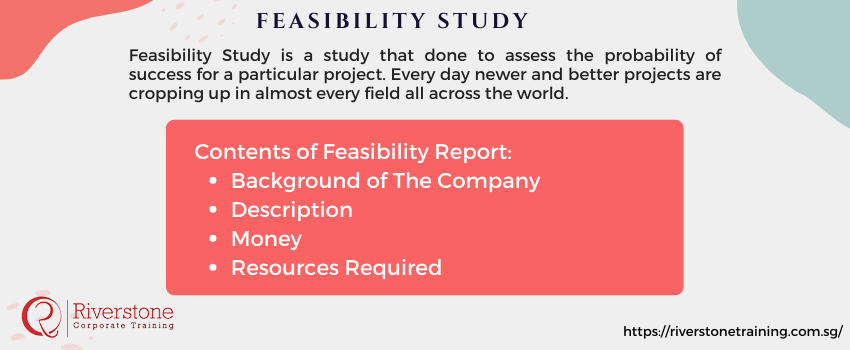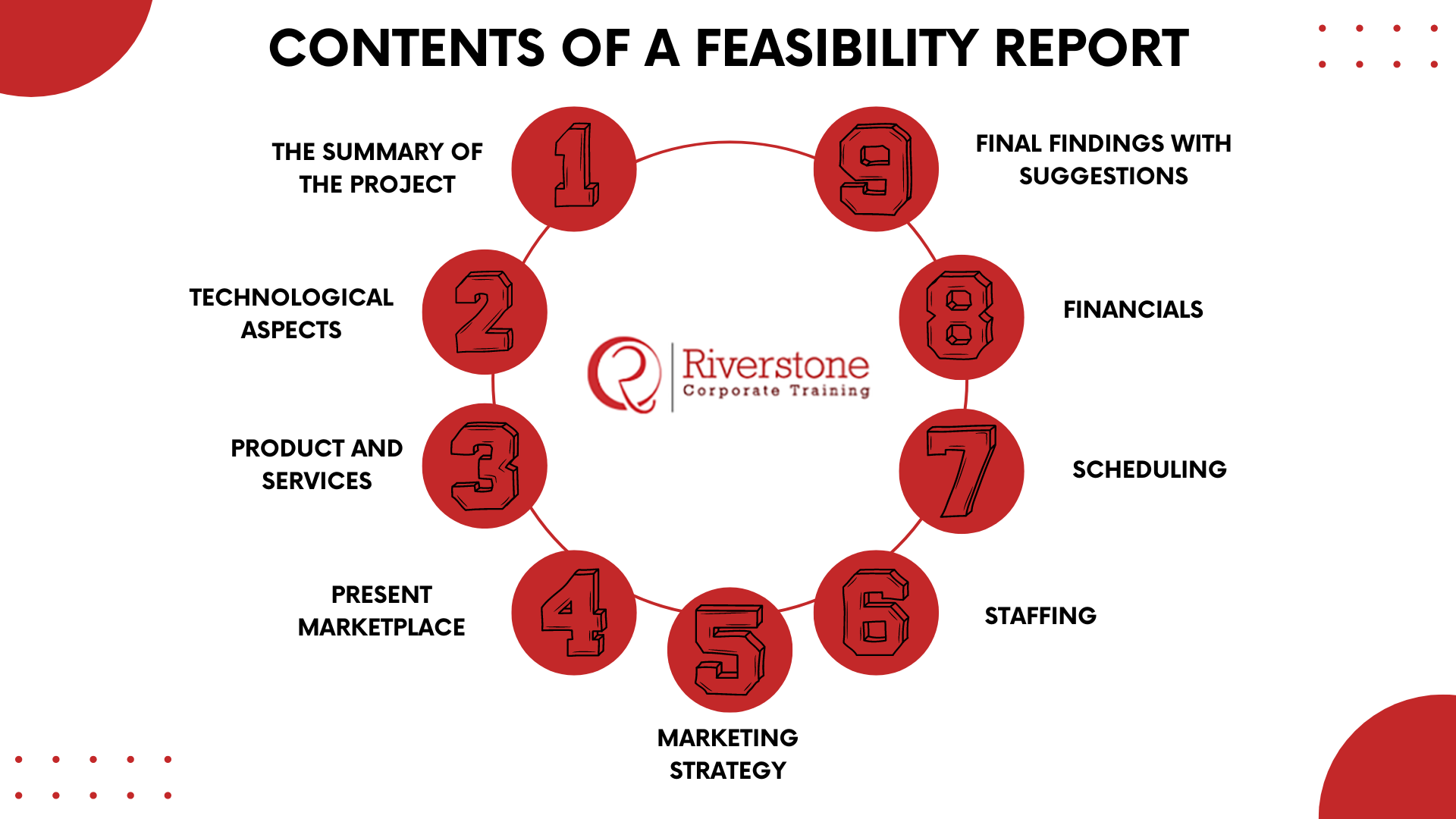
What is a Feasibility Study?
A Feasibility Study is a study that done to assess the probability of success for a particular project. Every day newer and better projects are cropping up in almost every field all across the world. The Feasibility study allows us to get a complex yet complete report analyzing and assessing several factors that are crucial for a specific project to be successful, and then determining if it has the potential to become a successful venture in the end. For early-stage founders looking to align feasibility assessments with business potential, enrolling in a startup valuation course in Singapore for early-stage entrepreneurs can provide the essential tools to evaluate market fit and long-term viability.
A proper feasibility report generally comprises several factors, ranging from the background of the company, the description and general use of the products, the money, and resources required along with the initial investment rate, tax obligations and many more. A Feasibility study report is not only necessary but also a brilliant way to determine the success rate of a particular business venture, and with its proper application, it can turn out to be immensely helpful.
Contents of a Feasibility Report:
There are specific contents found in every Feasibility report that are crucial in the making of it. Those contents are:
- THE SUMMARY OF THE PROJECT: This is the summary of the project details, that includes the business plan, product concept, service, and many others.
- TECHNOLOGICAL ASPECTS: The technology that the project needs, and the cost it will bear, the availability of it, impact of technology on the business, etc.
- PRODUCT AND SERVICES: You need to list the various product and services of the company, the pricing, cost of productions, unit to be manufactured, packaging, branding etc.
- PRESENT MARKETPLACE: You will need to examine the current marketplace where you are planning to launch the product to understand if this is the best choice for you or not.
- MARKETING-STRATEGY: You will need to check out the supply and demand ratio of the market, the local and other international competitors, marketing channels, distribution networks, etc.
- STAFFING: You need to know the number of people or staff that you’ll be needing for a project and their ramp up over the defined timelines.
- SCHEDULING: You need to add in the approximate time and date for the product to launch in the market.
- FINANCIALS: This is one of the essential sections of the feasibility report. Under this section, you have to mention total investment, source of funding, revenues, costs, tax, working capital, etc. for next 5-10 years. Besides, you need to add the financial analysis of the project including return analysis, ratio analysis, leverage analysis, valuation etc. Professionals preparing this section would greatly benefit from an advanced finance course in Singapore for working professionals, especially when aiming to sharpen practical skills in forecasting and financial structuring. Developing mastery in these areas is also crucial for those seeking guidance on how to build a successful career in advanced financial management.
- FINAL FINDINGS WITH SUGGESTIONS: Your report must have a conclusive end where you can add your final findings and also some recommendations for your project.
Conducting a Feasibility Study for Your Singaporean Startup:
Produce a very concrete set of guidelines targeting new ventures and startups in Singapore. This material has to disintegrate into small steps the process of feasibility study and concentrate on the most essential areas the matters of early-stage ventures in the local ecosystem are most essential. Alongside, provide a conventional checklist that can be downloaded and customized along with a simplified template (e.g., to use in excel or PDF) which Singaporean entrepreneurs could use to perform their own preliminary market, financial, and operational feasibility studies. Add some hints on the places where corresponding local information could be found (e.g., Department of Statistics Singapore, industry reports) and contact resource (e.g. to seek further assistance). To strengthen this content, relevant references can be made to the finance training courses for SMEs in Singapore, especially those that offer practical tools for market and financial validation. Additionally, those pursuing infrastructure-focused startups may benefit from enrolling in a project finance modeling course for infrastructure projects Singapore to better understand long-term investment and capital structuring in feasibility assessments. For better proficiency in handling data and financial assumptions, founders may also consider a basic Excel training course for finance professionals in Singapore to build their technical capabilities in preparing feasibility models.
Conclusion:
Any Feasibility study report is crucial to a new business idea, as it helps in giving a comprehensive overview of the whole project, including the return analysis for investors. Other than that, it also helps to create a final business plan, critical in the making of a long-term successful business venture, along with giving you several essential estimates.



